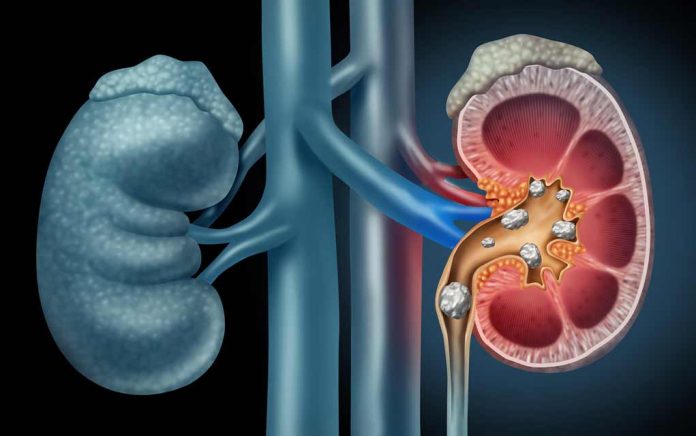
If you’ve ever found yourself hunched over from painful kidney stones moaning, “Why me?,” we’ve got some answers. Though approximately 1 in 10 people battle kidney stones at some point in their lives, some are more likely than others to have kidney issues. Your genes are partly to blame, but so are your dietary habits. Read on to learn why stones strike some people more than others — and what you can do to protect your kidneys.
The pain from lodged kidney stones is often compared to childbirth. If you’ve ever battled a kidney stone, you might be wondering why you’re the unlucky recipient of this medical issue. Research indicates that kidney stones may stem from genetic issues, and your diet also plays a role. Scroll down to discover whether you have an increased risk of developing kidney stones.
Find Out if You’re More Likely Than Others to Get Kidney Stones.
Don’t Wait to Use the Restroom
You may have heard warnings that holding your urine can trigger a kidney infection or cause other complications. And that’s not just a ploy to put more money in the pockets of toilet paper manufacturers — you really can develop kidney problems from waiting too long to urinate. You may even get painful kidney stones if your urine boasts a high mineral content.
Uric acid and calcium oxalate, two minerals found in urine, promote stone development. Help flush out these excess minerals by using the bathroom shortly after the urge to go strikes.
Watch Your Water and Salt Intake
When it comes to hydration, feel free to chug the heck out of your water bottle. This helps your body get rid of some stone-causing minerals. In fact, consuming 2 liters of fluid per day cuts your risk of developing kidney stones in half. Shoot for at least 2.5 liters per day if you have a history of kidney stones.
While you’re upping your water intake, work on decreasing the amount of salt you eat. Sodium binds to calcium, which we’ve already outed as a stone-triggering nutrient. High-sodium foods increase the amount of calcium in your body, potentially making you more likely to develop stones.
Consider Genetic Factors
A whopping 40% of people with kidney stones have a family history of them. This may be caused by genetic defects, such as mutations in the CLCN5 or OCRL1 genes. You may also have an increased risk of developing kidney stones if members of your family have rare conditions, such as cystinuria, hypercalciuria, hypocitraturia or primary hyperoxaluria. Let your doctor know if these conditions run in your family so you can create a plan to fend off stone formation.
When it comes to kidney stone prevention, some factors are beyond your control. However, you can attempt to keep your kidneys healthy by urinating regularly, drinking plenty of water and watching your salt intake. Let your doctor know if you suspect kidney stones are a possibility, even if you’re not in pain yet. Symptoms can escalate quickly, so it’s important to be proactive.
~Here’s to Your Healthy Ascension!
Copyright 2019, AscendHealthy.com













